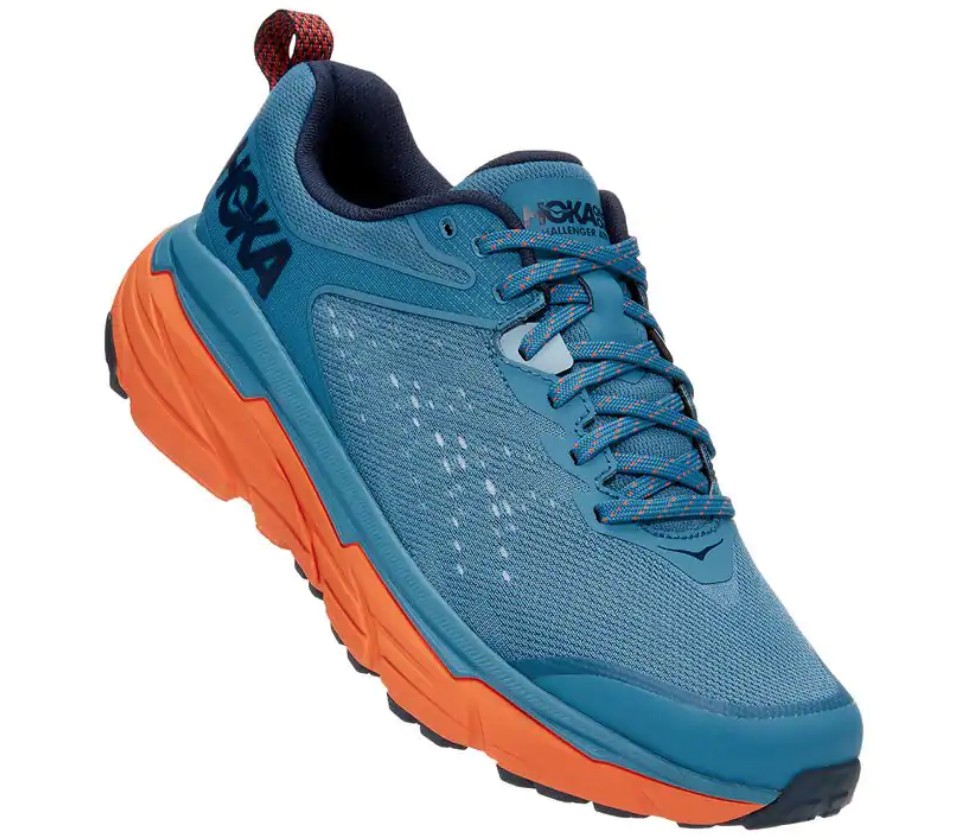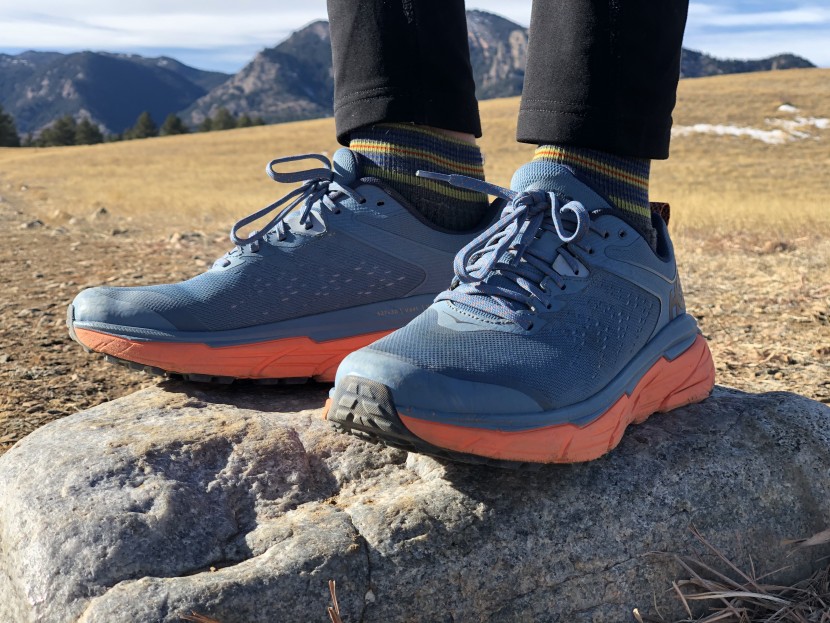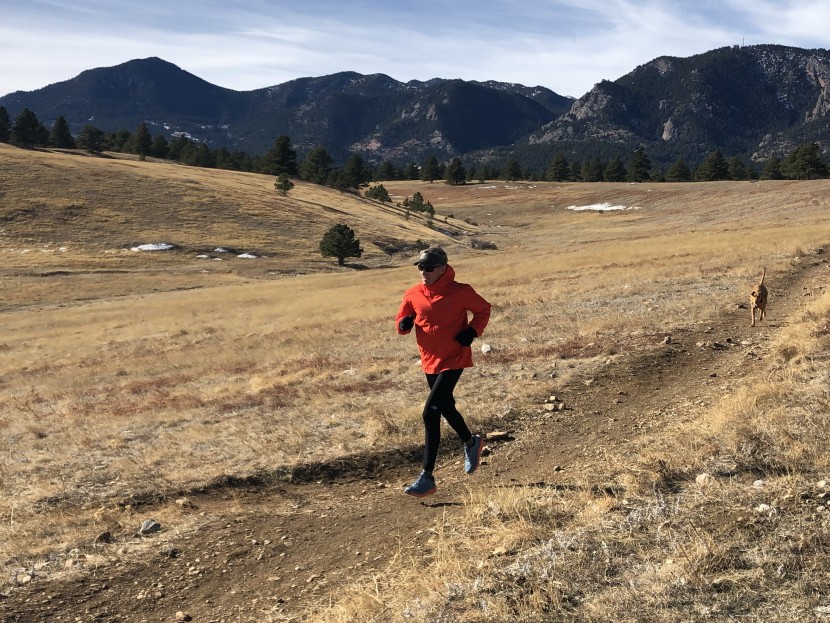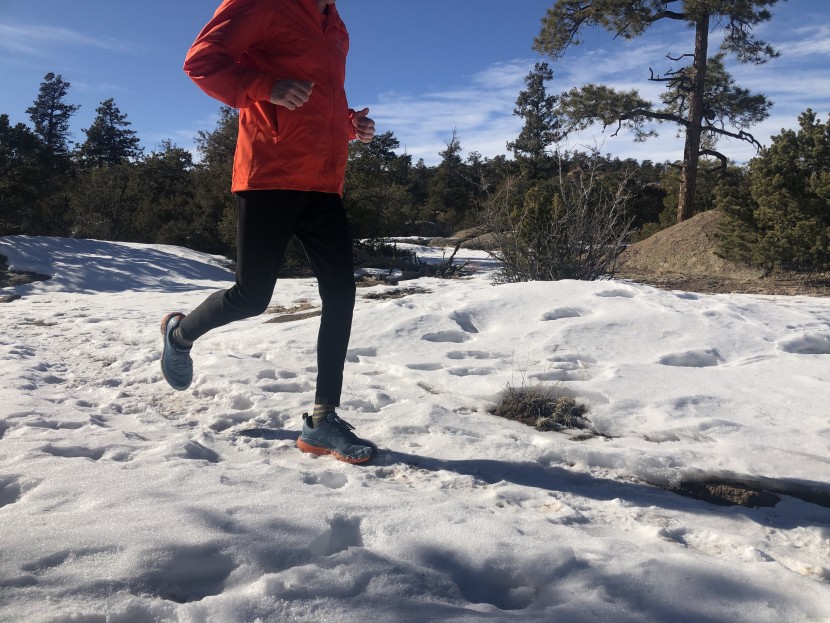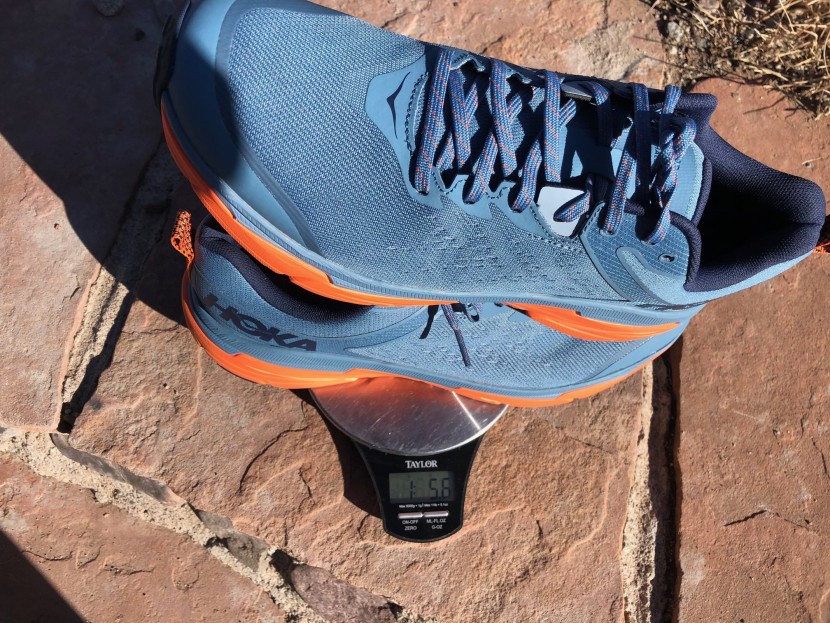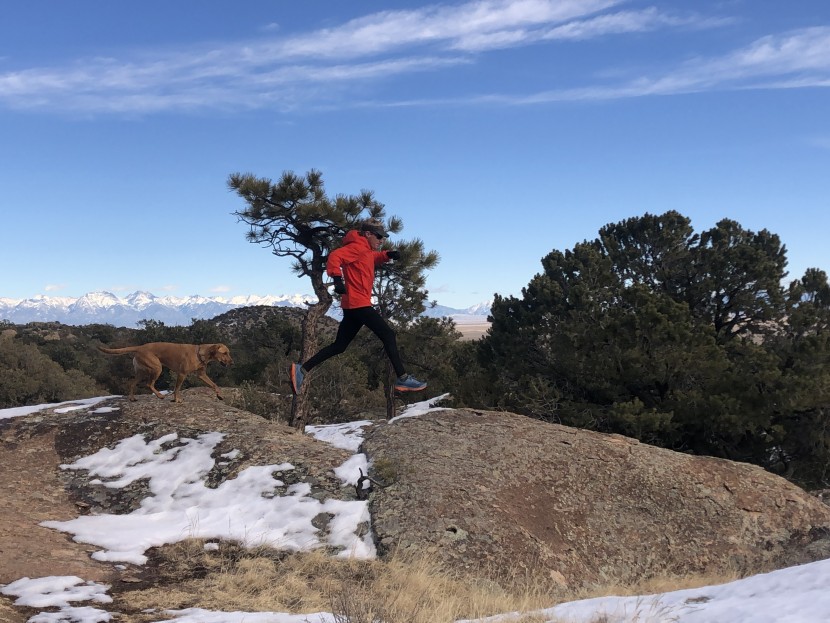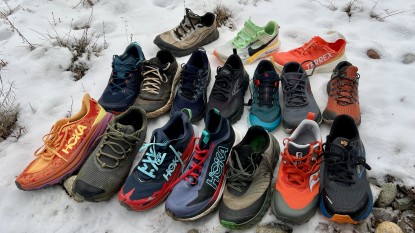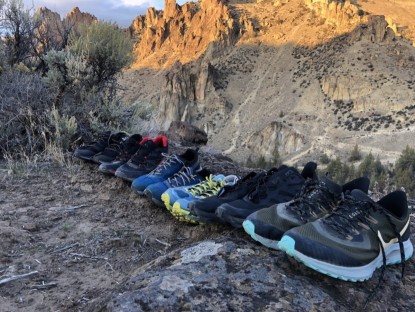HOKA Challenger ATR 6 Review
Our Verdict
Our Analysis and Test Results
The Challenger ATR 6 is designed to be an all-terrain runner (ATR) and, as such, has a tread pattern that is middle of the road in terms of trail running shoes. The tread grips well on trails but isn't so soft or aggressive that it will just rip off or wear down if you run on pavement, and thus this shoe is ideal for both. Even though other HOKAs have far more aggressive and stickier lug patterns, we still love the Challenger for trail running. We think the shape and comfort level of the Challenger makes them more enjoyable for running longer distances — the hallmark of the HOKA brand. These shoes are medium width and comfortably hold the foot in place without crunching the forefoot or toes when running downhill. They come in many colors and a wide version if you have extra wide feet or want to give your foot extra space to expand on the back half of a hundred.
Foot Protection
HOKA shoes are well known for very thick foam midsoles that protect the foot from almost any impact while also providing shock absorption to reduce impact stress on runners, especially over long distances. The Challenger ATR 6 uses CMEVA foam, which is compression molded and feels sturdy underfoot, and earned one of the highest scores in our testing. Gone are the days of the super squishy and bouncy HOKA shoes.
The 30mm of underfoot foam certainly translates into a supreme amount of foot protection, and it's no surprise that these shoes rank up there with the best in this category. Stepping on rocks, roots, or any rough terrain won't phase your feet for a second while wearing these shoes, which is one of the best reasons to buy them. On the other hand, the upper offers a standard amount of protection for a mesh trail running shoe and has plenty of exposed fabric that can tear should it become caught on anything. If you frequently run through thick underbrush, you may want to consider wearing gaiters for extra protection.
Traction
The sole of these shoes has a relatively even mix of rubber traction covered in lugs and exposed foam that is flexible enough to bend and mold itself to the terrain. In our experience, this exposed foam may nick or tear a little bit here or there but is still surprisingly resilient and durable. The lugs are 4mm deep, and most are rectangular with a large amount of surface area, which tends to help with grip on hard surfaces but reduces the bite into soft or slippery surfaces. Thus, it earned an average score in this metric. The rubber is HOKA's compound, which strikes a pretty good balance between stickiness and durability.
The traction on this shoe is more than adequate for virtually all trail running and only becomes a bit of a hindrance if you are running through extreme mud, snow, or doing a lot of off-trail running, in which case you'd be better off with a different shoe. It's also designed to be durable enough to run a fair amount on pavement without wearing off too quickly, making these a good option for urban trail runners.
Sensitivity
It will likely come as no surprise that these shoes rank near the bottom of the pile for sensitivity. The super thick, dense foam underfoot simply doesn't allow much through to the foot — by design. If you are after trail feel, we highly recommend you opt for a different shoe, as these HOKAs are explicitly designed to protect the foot and body from the ground and repetitive impacts. The lack of sensitivity is one of the trade-offs of choosing a maximally cushioned shoe.
Stability
Stability has long been the biggest downside to maximally cushioned shoes such as HOKAs, with their very tall stack of foam underneath the foot. In general, the further your foot is above the ground when it lands, the less stable the shoe is. However, HOKA has continued to improve these shoes to be more and more stable. The improvements include a firmer foam compound that is more reliably consistent when landing, as well as a reasonably low 5mm heel-toe drop; however, relative to other shoes in this review, the Challenger still scored below average.
Compared to past iterations, HOKA has expanded the size of the under-heel platform in this shoe, enhancing the feeling of stability. While the fit of the heel within the upper is the same, the foam itself expands outwards below the foot. This feature by no means ensures stability on par with low riding, zero-drop shoes, but it does improve on past HOKAs and has helped the shoe feel less tippy.
Comfort
We find this to be a very comfortable shoe, with an average width in the forefoot, adequate space for the toes, and a heel on the wider side, but not so much that it is loose and sloppy. Of course, everyone's feet are different, so you may not feel as comfortable in it as we did. Still, for those with wide feet, HOKA has you covered with a wide version. The shoe is also very well made, with a very smooth, nearly seamless inner and no pinch points or sources of chafing or rubbing that can cause blisters.
If we have to be nitpicky, we could say that the platform or insole feels slightly odd-shaped under the foot as if it isn't completely flat — it feels sort of hollow like a bathtub. We felt this with the last version, and these most recent iterations of this shoe fit and feel pretty much identical. It is a minor thing to point out and doesn't stop us from thinking this is one of the best long-distance options you can buy. Our feet felt great wearing them on 20+ mile training runs.
Weight
These shoes weighed in at 21.8 ounces per pair of men's size 11 on our scale, a tiny smidge heavier than the last versions. This minimal added weight can probably be attributed to the larger foam volume underfoot.
These rank up there with some lighter shoes in this review. While they are nowhere near as light as ultralight and low to the ground models, they are easily among the lightest of everyday trainers, which is remarkable to think about since they are so large and offer such excellent protection. We also consider this when searching for an ultra shoe, as even an ounce or two can make a massive difference in terms of fatigue if you are running 50 or 100 miles.
Should You Buy the HOKA Challenger ATR 6?
The HOKA Challenger ATR 6 is a great maximally cushioned and versatile shoe designed to be equally as effective on mellow terrain as on gnarly mountain trails. Despite its urban capabilities, we actually prefer it for rougher trails, and especially long-distance running, as it has a more comfortable and stable design. We highly recommend this kick to those who want maximal cushioning and a comfortable, long-lasting ride.
What Other Trail Running Shoes Should You Consider?
These are some of the more affordable HOKA shoes and now are roughly average in terms of price for a pair of trail running shoes. Historically, based on our own experience and by talking with others, these are shoes that can handle many miles and will stick with you through your longest training sessions while giving you maximum support. The Scarpa Spin Ultra is another ultra-comfortable shoe that we recommend that offers good protection on longer distance runs. But if you prefer your runs to be short, quick, and punchy, you may prefer a lighter and more minimal shoe, like the HOKA Torrent 2.


